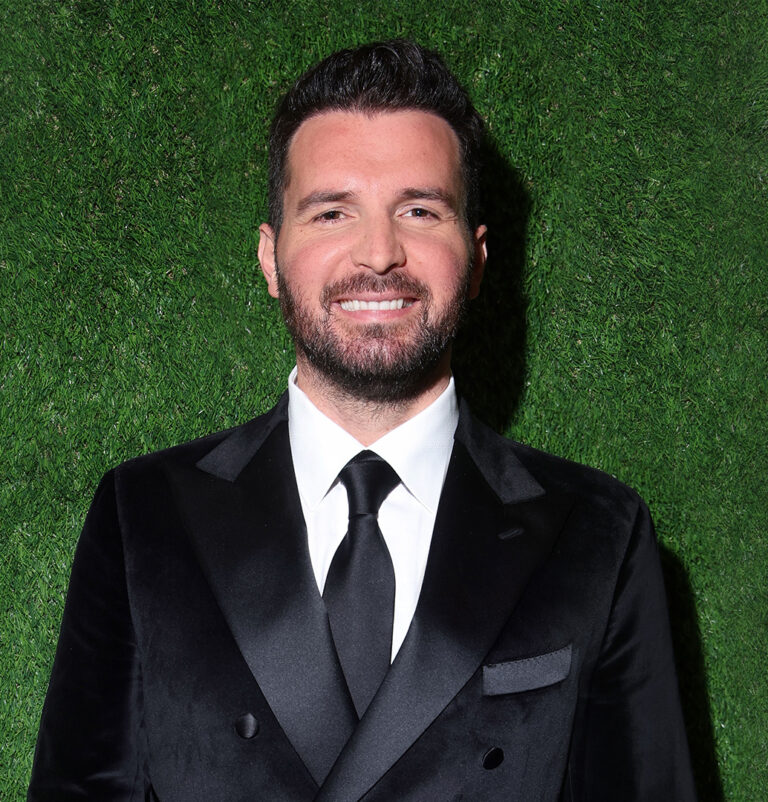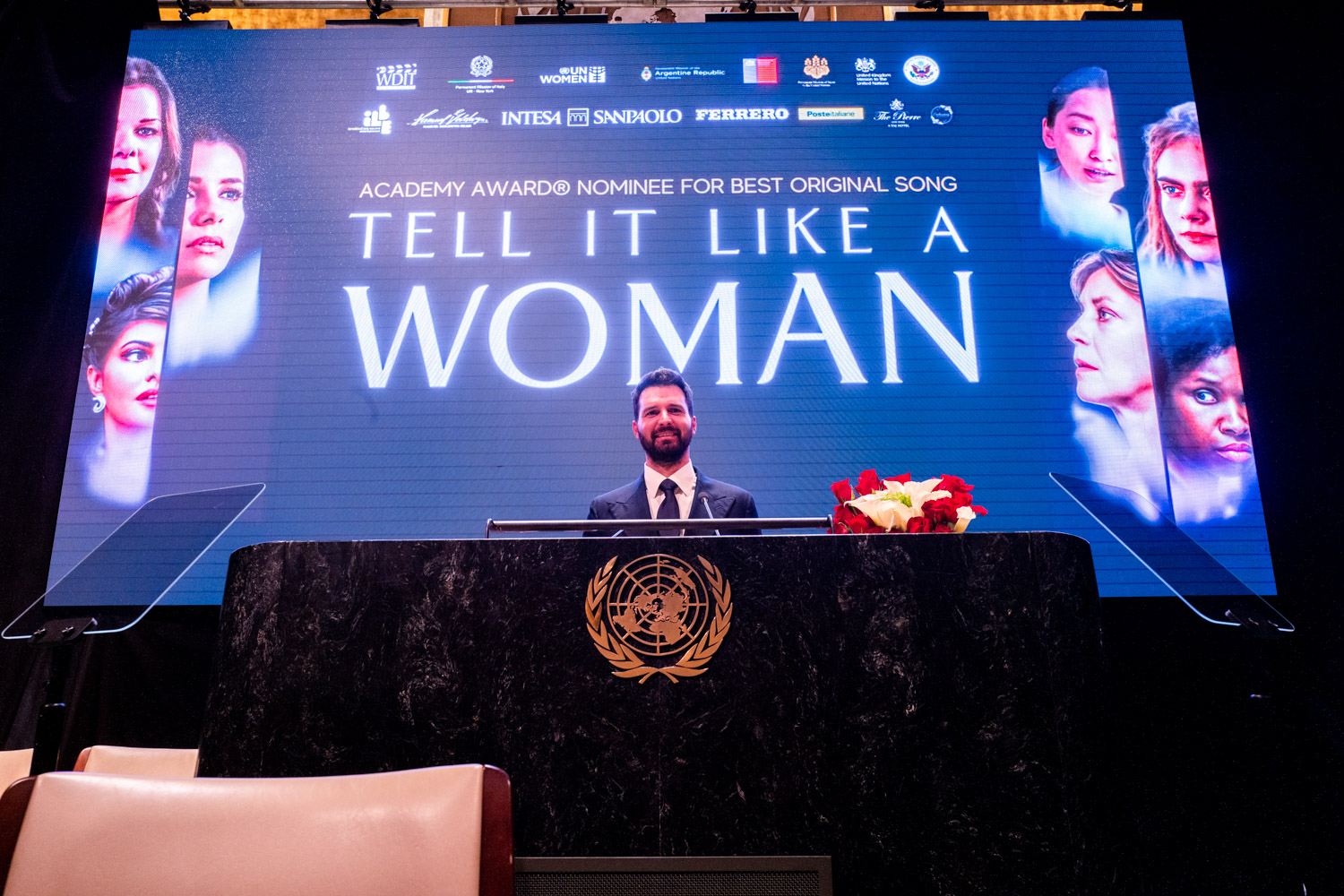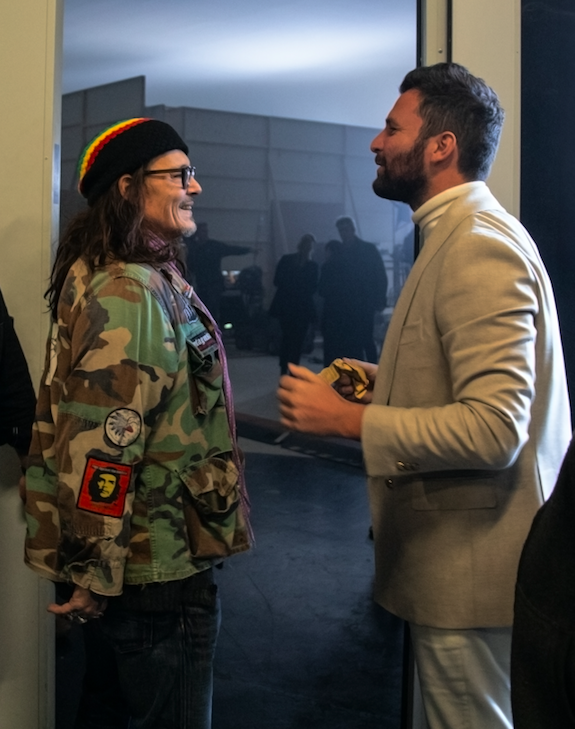
Andrea Iervolino is an award-winning film producer and businessman whose passion for cinema led him to take his first steps in the film industry when he was just an adolescent. Since then he has gone on to produce and distribute over 75 films, becoming one of the most active and accomplished film executives in the world.
As the CEO of ILBE, he is currently one of the youngest and most appreciated Italian entrepreneurs in the world of cinema. In 2018 Iervolino was awarded the Knighthood of the Italian Republic by the President of the Italian Republic, Sergio Mattarella, as well as from the Italian Consulate of Canada, for his excellent achievements in the fields of entrepreneurship and media culture. In 2020 Variety ranked him among the 500 most significant business leaders, that shape the global media and entertainment industry.
Among the films he produced there is the Academy Award-nominated movie Tell It Like a Woman, Lamborghini: The Man Behind the Legend, Ferrari, and most recently the courageous documentary Ghost Detainee about the Abu Omar case.

In this Exclusive Interview Andrea Iervolino shares his rise to success as a visionary producer:
Q: You started producing very young, anticipating the use of digital, how did you begin?
A.I.: The world of cinema has always fascinated me greatly. I started in Cassino, my hometown: I locked myself in the attic of my parents’ shop, and I used to cut out cartoon characters and played with them. The turning point came at the age of 16, when I went to work as a tourist resort entertainer taking care of the theatrical shows. This is when I fell in love with that world of costumes, stories and sets. Once I returned to Cassino I decided to shoot my first film at the Abbey of Montecassino, asking for a contribution from all the shopkeepers in the town. For the cast I chose the bartender, the postman and several friends. Thanks to my aunt, who was a teacher, I managed to have the film shown in schools in the morning, inventing a new way of distributing films: the Cineschoolday. We involved the schools in my town, and then throughout Italy, with morning screenings. Eventually the meeting that changed my life was with producer Luciano Martino, who taught me so much. He was like a second father to me.
Q: You lived between Rome, Toronto and Los Angeles, how do you find these places complementary?
A.I.: Each city has offered me unique opportunities in the film world. Rome inspired me with its film history and culture, Toronto provided me with a platform to explore independent and innovative cinema, while Los Angeles allowed me to immerse myself in the film industry and make important connections with the most important producers, distributors and actors in the world.
Q: With Tuscany Film Studios you are bringing an innovative and unique studio concept to Italy. Tell us more about it…
A.I.: The Tuscany Film Studios is an ambitious project: it is a cutting-edge cinema complex, equipped with the best facilities and technologies for film production. It offers a creative and inspiring environment for filmmakers from around the world. It will be the largest film studio in Italy equipped for virtual reality. Live action 360 cinema is the great frontier of the future and we are determined to be pioneers in this sector.
Q: You are also a pioneer of new technologies, how did you develop the idea of TaTaTu and how do you think it will influence the world of entertainment?
A.I.: TaTaTu is a blockchain-based social entertainment platform. The objective is to combine and innovate the best features of the main platforms and social networks. Thus, creators and consumers of content receive digital points as they participate in the social network by interacting, which strongly incentivises participation. These points become real credits to be used on dedicated e-commerce.
Q: Animation plays a very important role in your work as a producer, who are the animators of the past who influenced you to cultivate this film genre?
A.I.: Disney and Pixar are certainly the studios that have influenced me the most and I believe they are the greatest reference for anyone who has undertaken the development of this film genre.
Q: How did you convince Pope Francis to participate in Beyond the Sun?
A.I.: We didn’t have to convince him. He read the story we wanted to tell and found it in line with the values he has always cultivated in spreading the word of the Gospel throughout the world. It was a unique and unrepeatable experience and I will never thank him enough for agreeing to be involved in our project.
Q: What trait must a script or story have to impress you?
A.I.: For me the most important aspect is the degree of engagement that it manages to generate, the passion it manages to convey. I must feel involved in the story and its protagonists, empathising and grasping universal meanings through their actions that may reflect on our time.
Q: Antonio Banderas, John Travolta, Sara Jessica Parker, Al Pacino, Mark Rylance, Robert Pattinson, are some of the names of the actors you worked with, who impressed you the most and how?
A.I.: They are all professionals of the highest level, each with their own artistic path, capable of bringing significant added value to all the productions in which they participate. I think that each of them — every actor who reaches their level — can make a difference to the outcome of a film, especially if they manage to build synergies with the director and the rest of the cast.
Q: You have established a collaboration with Johnny Depp (Waiting For The Barbarians, Minamata, Puffins), who has been part of some of your past films and is now working on his latest film as director: Modì. What do you appreciate most about his artistic approach?
A.I.: Johnny Depp is an extraordinary artist. I appreciate his transformative skills for every character he plays, as well as his ability to bring complex roles to life with an emotional depth that captures the audience’s attention. His collaboration has always been characterised by total commitment and an incredible passion for cinema, which makes him an ideal partner for our artistic projects.

Q: Thanks to the Piedmont Film Commission, Turin has become a place where many films are made and it is where the Tuscany Film Studios headquarters are located. Do you think this city has potential on the international film scene?
A.I.: Absolutely, Turin has great potential on the international film scene. The city offers a unique combination of history, culture and modern infrastructures that makes it an ideal location for film production. The presence of the Tuscany Film Studios adds further resources to the city and aims to transform it into an internationally attractive film hub thanks to high-quality studios and cutting-edge services ready to host the technologies of our studios.
Q: Now you will transform Memoirs of Hadrian into a TV series, how did this project come about?
A.I.: I have always admired Marguerite Yourcenar’s novel and believed it could be turned into a powerful television series that explored the complex dynamics of power and leadership. Through the series, we intend to delve deeper not only into the historical events and great conquests of Emperor Hadrian, but also into his inner world, his doubts, his fears and his deepest aspirations.
Q: Tell us about your project dedicated to the production of sports and entertainment content in space…
A.I.: Space 11 is certainly one of my most ambitious projects, but it is the outcome of a pondered reflection concerning the direction that all industries are taking. The moment in which space will become an increasingly accessible dimension for everyone is approaching, as confirmed by the fact that many important entities are already investing in space tourism. The world of cinema cannot and must not be left behind. Our vision to create a space station capable of hosting sporting events or acting as a production studio by 2028 will take entertainment to a whole new level.
Q: What advice would you give to a young person who would like to follow in your footsteps?
A.I.: I would undoubtedly say that they shouldn’t be afraid to take risks: thinking outside the box, in a world like the film industry, often means being one step ahead of the others. You have to believe in your abilities, focus on a clear goal and do everything you can to achieve it.
Check out more of Chiara’s articles.


